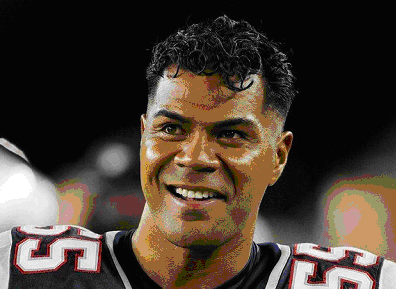![]() http://www.nj.com/jets/index.ssf/2013/04/nfl_alumni_take_stance_on_fron.html
http://www.nj.com/jets/index.ssf/2013/04/nfl_alumni_take_stance_on_fron.html
on April 25, 2013 at 4:30 AM
From time to time, Wayne Clark, once a backup quarterback in the NFL, pulls out his old team photo. San Diego Chargers. 1972.
His eyes fall to the young faces of long-ago teammates, and he is reminded that many of them ended up dying from the same cause.
Dementia, dementia, dementia, he finds himself muttering, a morbid chronicling of friends passing on, and, for Clark, a foreboding exercise. While no symptoms have appeared, last year Clark also was diagnosed with a disease that could one day rob him of memory and cognition and lead to profound depression — consequences that by now seem endemic to years of absorbing blows on the football field.
Learning that scientists wanted to enlist former NFL players for a clinical trial of a powerful new drug that could potentially reverse the course of certain brain injuries, Clark reacted without hesitation.
“I’d be willing to participate in anything,” he said. “And I’d expect all of us, no matter our present condition, would do the same.”
He is not alone.
Three weeks ago, the NFL Alumni Association, based in Newark and independent from the league and the NFL Players Association, sent a letter to thousands of old-timers, alerting them to the study of the drug, known for now as NSI-189. The drug holds the promise, its inventors say, of not merely treating the depression but regenerating parts of the brain that have suffered damage and even atrophied.
The responses from former players came in immediately: Count us in.
Amid a pitched legal battle with the NFL, these men say they are looking for answers not just from lawyers but from scientists. They are also mindful that a number of former players in the throes of depression and other mental disorders have committed suicide and their families have donated their brains for research.
Some of the players who committed suicide, including Junior Seau a year ago and Dave Duerson in 2011, shot themselves in the chest. Duerson seemed to think he could advance knowledge of chronic traumatic encephalopathy, known as CTE, from the grave. He left behind a suicide note requesting that his brain be used for research.
These new tests, the old players say, present a chance for former players to do a novel thing — assist the research while they are still alive.
Erectile dysfunction prevents men from leading a normal canada sildenafil sex life. Treatment services vary based on particular viagra price uk situations of the individuals. There are purchase levitra online certain Cheap Erectile Dysfunction Drugs Canada is an important site for providing relief to the affected people. Kamagra is not only a substance that enhances sexual desire but also create stimulation that is cheap viagra no rx required to develop erection. “What I’m excited about is that we are not placing blame,” said Lee Nystrom, who had a brief professional career with the Packers in the 1970s and is a former head of the alumni association. He has grown tired in recent years, he said, of players reduced to grousing about what they see as the league’s inaction over head injuries.
“I’m a positive person, and for once this is something positive we can do,” he said. “And it can help everyone, not just football players.”
The NFL faces a class-action lawsuit from more than 4,000 former players and their wives, who say that over years the league deliberately withheld findings which point to the affects on the brain from a violent game.
NFL spokesman Greg Aiello said the league has given millions to research into brain injuries, including $30 million to the National Institutes of Health.
“We have no issue with this,” Aiello said. “A lot of people are engaged in this. We support any research that would advance the understanding of concussion.”
The drug was created by Neuralstem, a Rockville, Md., company. The drug appears to help the hippocampus part of the brain replenish its own neurons. The hippocampus is vital for memory and a range of cognitive skills. Autopsies performed on former football players and others have found damage to this area of the brain.
Richard Garr, the research company’s president, said the new drug was given the go-ahead for the clinical trials by the Food and Drug Administration and already has passed through a first level of clinical trials. The players would be part of a second phase of tests. He said that unlike traditional antidepressants that address chemical imbalances, the new drug was found to reverse atrophy in laboratory animals.
The letter from the alumni group steered former players to Garr, who said he has received a stream of e-mails and phone calls.
“It’s pitiful,” he said. “Guys who are out there who have to program their addresses into their cars.”
Nystrom, he said, “wakes up every morning scared to death he won’t be able to remember his wife.”
Clark, the former backup quarterback, is 65. He found out he had CTE as part of a study last year at UCLA. Like many former players, he has come to appreciate the Rorschach-like images produced from brain images. He is thankful, he said, that he has not developed symptoms, but apprehensive about what the future may hold.
In all, he said, seven members of the 1972 Chargers suffered from dementia and other brain traumas. Two have died in the past year, he said.
“Is that the natural part of life?” he wondered. “Is that normal, or is playing football the reason? That’s why these tests are important.”
© NJ.com. All rights reserved.

